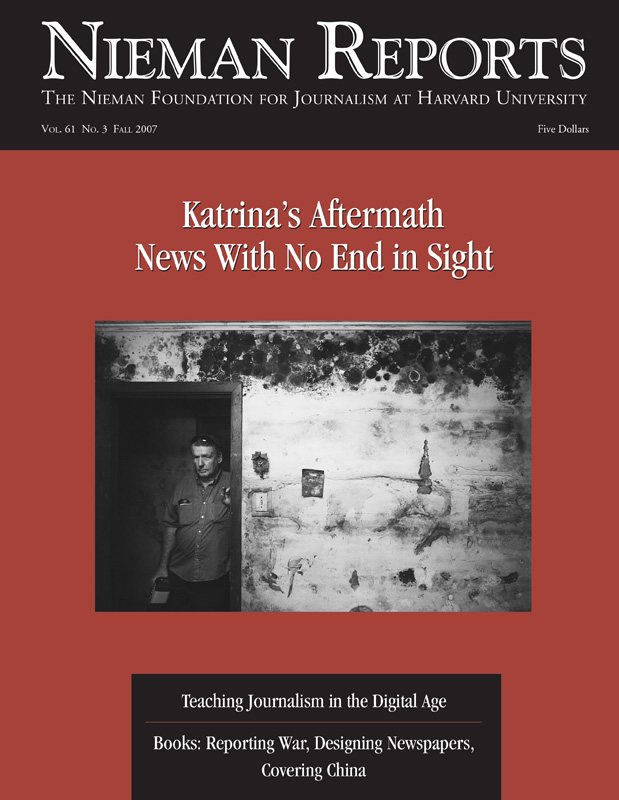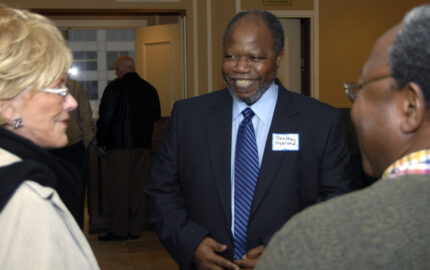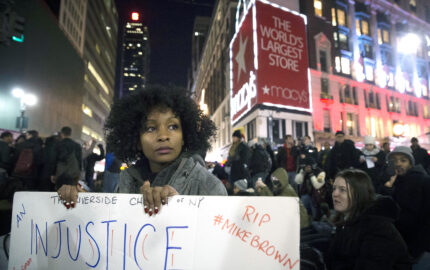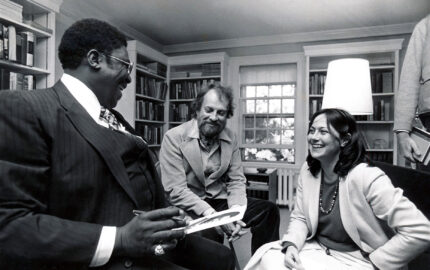You May Lie: that’s the difference between poetry and reportage. Although what matters is telling the truth. In poetry, you may also return to a moment once it has passed and wander back into that fear, doubt, regret to try to make meaningful sense of what happened, or didn’t. All of us have notebooks and brains full of narrative poetry. Here are a few from mine.
Monkey
The soldiers are children and the monkey’s young.
He clings to my leg, heart against calf—
a throat filling, refilling with blood.
Last week, the children ate his mother—
dashed her head against the breadfruit.
A young girl soldier laughs,
tears the baby from my leg
and hurls him toward the tree.
See, she says, you have to be rough.
When she was taken, the girl’s
heart too pulsed in her throat.
This poem comes from an encounter with a young soldier at a Revolutionary Armed Forces of Colombia (FARC) camp at the edge of the jungle near San Vicente, Colombia. The visit took place in 2001, when the FARC’s 42,000 square kilometer dmz, called Farclandia, still existed. There, the FARC was free to mete out justice and to play beach volleyball. The relatively relaxed atmosphere made it easier for young soldiers to tell their stories. —E.G.
Buying Rations in Kabul
The Uzbek boys on Chicken Street
have never had enough to eat.
They stock from shelf to shining shelf
these GI meals, which boil themselves
in added water (bottled, please).
In twenty minutes, processed cheese
on jambalaya followed by
a peanut butter jamboree.
The boys, polite,
advise on which we might prefer—
Beef Teriyaki, Turkey Blight—
and thank us twice for bringing peace
as, meals in hand, we leave the store.
Of course they know that any peace
that must be kept by force
goes by another name.
This was the bustling city in 2002, swollen with recently returned refugees. Two young ethnic Uzbeks ran their father’s shop on Chicken Street. At the time, they stocked mostly MREs they procured from Bagram Air Force Base. The boys were enthusiastic about the MREs and loved to offer advice about which were best but, as I hope is clear, they’d never eaten them. —E.G.
Bedbugs
In the Bedouin’s foam mattress,
a bedbug mother tips back her baby’s chin
and pours my blood down his throat. You wrote
in all my wandering I risk my chance
to give birth. That’s hardly true. All over
the earth, I’ve fed my flesh to bugs.
That’s some kind of mother for you.
This irritated poem was born of too many scratchy long-distance phone conversations between Medellin, Colombia and Woody Creek, Colorado. It also bears a universal empathy for those of us who’ve woken with those terrible bites and the spots of blood the bugs leave on sheets when they burrow into exposed flesh. —E.G.
Arrest
The joins in the highway rise below the tires
as if we are running over bodies.
The windows are covered in butcher paper
and night coming cools the car’s frame.
My head hangs the way cows’ do:
complete submission to being led.
The last thing I saw was the red cloth coming
before it was tied around my eyes.
My spirit thumps in the darkness.
I’ve seen the pictures on the internet.
Sometimes I fake a swoon or cry,
hoping it might free me.
Sometimes I refuse to answer
questions they already know.
They feed me water from a cup;
I swallow. How human we are,
the tender, puncturing skin,
the illusion we can save ourselves
if we find the right words
and try with all our might.
This was written after an arrest in North Waziristan. I suffered very little in comparison to those who were with me at the time. —E.G.
Eliza Griswold, a 2007 Nieman Fellow, is a fellow at the New America Foundation. Her poems are from “Wideawake Field,” Griswold’s first book of poetry, published by Farrar, Straus and Giroux. She is working on a nonfiction book, “The Tenth Parallel,” which also will be published by Farrar, Straus and Giroux.
Monkey
The soldiers are children and the monkey’s young.
He clings to my leg, heart against calf—
a throat filling, refilling with blood.
Last week, the children ate his mother—
dashed her head against the breadfruit.
A young girl soldier laughs,
tears the baby from my leg
and hurls him toward the tree.
See, she says, you have to be rough.
When she was taken, the girl’s
heart too pulsed in her throat.
This poem comes from an encounter with a young soldier at a Revolutionary Armed Forces of Colombia (FARC) camp at the edge of the jungle near San Vicente, Colombia. The visit took place in 2001, when the FARC’s 42,000 square kilometer dmz, called Farclandia, still existed. There, the FARC was free to mete out justice and to play beach volleyball. The relatively relaxed atmosphere made it easier for young soldiers to tell their stories. —E.G.
Buying Rations in Kabul
The Uzbek boys on Chicken Street
have never had enough to eat.
They stock from shelf to shining shelf
these GI meals, which boil themselves
in added water (bottled, please).
In twenty minutes, processed cheese
on jambalaya followed by
a peanut butter jamboree.
The boys, polite,
advise on which we might prefer—
Beef Teriyaki, Turkey Blight—
and thank us twice for bringing peace
as, meals in hand, we leave the store.
Of course they know that any peace
that must be kept by force
goes by another name.
This was the bustling city in 2002, swollen with recently returned refugees. Two young ethnic Uzbeks ran their father’s shop on Chicken Street. At the time, they stocked mostly MREs they procured from Bagram Air Force Base. The boys were enthusiastic about the MREs and loved to offer advice about which were best but, as I hope is clear, they’d never eaten them. —E.G.
Bedbugs
In the Bedouin’s foam mattress,
a bedbug mother tips back her baby’s chin
and pours my blood down his throat. You wrote
in all my wandering I risk my chance
to give birth. That’s hardly true. All over
the earth, I’ve fed my flesh to bugs.
That’s some kind of mother for you.
This irritated poem was born of too many scratchy long-distance phone conversations between Medellin, Colombia and Woody Creek, Colorado. It also bears a universal empathy for those of us who’ve woken with those terrible bites and the spots of blood the bugs leave on sheets when they burrow into exposed flesh. —E.G.
Arrest
The joins in the highway rise below the tires
as if we are running over bodies.
The windows are covered in butcher paper
and night coming cools the car’s frame.
My head hangs the way cows’ do:
complete submission to being led.
The last thing I saw was the red cloth coming
before it was tied around my eyes.
My spirit thumps in the darkness.
I’ve seen the pictures on the internet.
Sometimes I fake a swoon or cry,
hoping it might free me.
Sometimes I refuse to answer
questions they already know.
They feed me water from a cup;
I swallow. How human we are,
the tender, puncturing skin,
the illusion we can save ourselves
if we find the right words
and try with all our might.
This was written after an arrest in North Waziristan. I suffered very little in comparison to those who were with me at the time. —E.G.
Eliza Griswold, a 2007 Nieman Fellow, is a fellow at the New America Foundation. Her poems are from “Wideawake Field,” Griswold’s first book of poetry, published by Farrar, Straus and Giroux. She is working on a nonfiction book, “The Tenth Parallel,” which also will be published by Farrar, Straus and Giroux.



